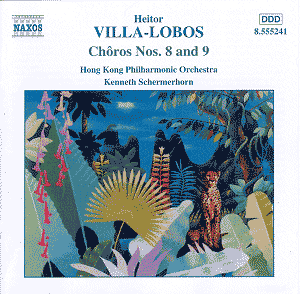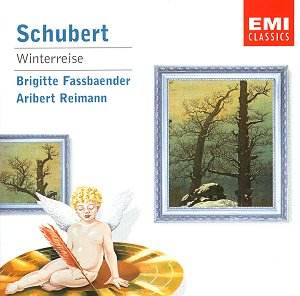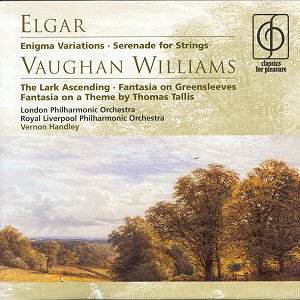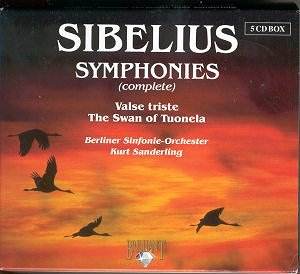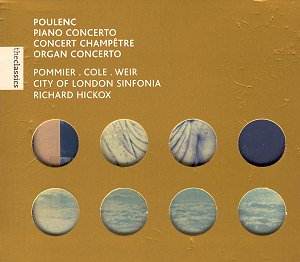 Composer: Francis Poulenc
Composer: Francis Poulenc
Works: Piano Concerto, Concert champêtre for harpsichord, Organ Concerto
Performers: Jean-Bernard Pommier (piano), Maggie Cole (harpsichord), Gillian Weir (organ), City of London Sinfonia, Richard Hickox (conductor)
Recording: Recorded at Henry Wood Hall and Royal Festival Hall, London, February 1988
Label: Virgin Classics
Francis Poulenc, a quintessential figure of the French musical landscape in the 20th century, captivates listeners with his distinctive blend of wit, lyricism, and a penchant for the absurd. This recording presents a trio of his keyboard concertos—works that not only showcase his exceptional gift for melody but also reflect the diverse influences that permeated his compositional style. Each piece possesses its own character, from the exuberant and mischievous to the introspective and solemn, offering a splendid panorama of Poulenc’s artistic voice.
Jean-Bernard Pommier’s interpretation of the Piano Concerto, composed in 1949, reveals a deep understanding of the work’s playful yet poignant nature. The slow movement emerges as a highlight, as Pommier’s phrasing draws forth a rich tapestry of Rachmaninov-like colors, combining tenderness with a vibrant flair. The final movement’s inclusion of the American folk song “Swanee River” serves as a delightful nod to Poulenc’s penchant for surprise, although it may have gone unnoticed by its original audience in Boston. Hickox’s orchestration supports Pommier’s artistry well, though the mix occasionally favors the orchestra at the expense of the piano’s voice, an imbalance that detracts from the overall impact.
The Concert champêtre for harpsichord, crafted in 1929 for the renowned Wanda Landowska, is a fascinating study in stylistic juxtaposition. Maggie Cole’s performance is marked by dexterity, navigating through the various pastiche styles with aplomb. The Allegretto second movement, characterized by its slow Sicilienne, is particularly noteworthy for its lyrical elegance. However, the recorded balance again proves problematic; the harpsichord often recedes into the background, losing its essential clarity amidst the orchestral swell. Cole manages to infuse the work with the spirit of the 18th century, yet the engineering missteps undermine the brilliance of her interpretation.
The Organ Concerto, composed in 1938, presents an unusual but effective use of the Royal Festival Hall’s organ, designed by Ralph Downes. Gillian Weir, a formidable organist, brings forth an exhilarating performance that resonates with the grandeur of Poulenc’s vision. The Toccata opening is executed with a bright, incisive registration, while Weir’s choice of mixtures in the Allegro imbues the performance with a dramatic flair. Her ability to shift between the boisterous and the serene allows for a compelling exploration of the work’s contrasting moods. Nonetheless, the organ’s inherent qualities—more suited to Bach—result in moments where the orchestral accompaniment feels overly dominant, somewhat overshadowing the organ’s distinctive voice.
Richard Hickox, conducting the City of London Sinfonia, demonstrates a keen sensitivity to the nuances of Poulenc’s idiom across all three concertos, yet the inconsistent recording quality detracts from what could have been a truly stellar interpretation. The engineering decisions—especially concerning balance—reveal a miscalculation that hinders the listener’s experience, particularly in the harpsichord and organ works where the solo instruments should be more pronounced.
The recording of Poulenc’s concertos, while offering moments of brilliance through the performances of Pommier, Cole, and Weir, ultimately suffers from technical shortcomings that prevent it from standing alongside the finest renditions of these works. Each performance showcases the unique character of Poulenc’s compositions, yet the engineering choices dilute the impact of their artistry. Enthusiasts of Poulenc may find value in this recording, but it remains a tantalizing glimpse rather than a definitive interpretation of these vibrant works.
